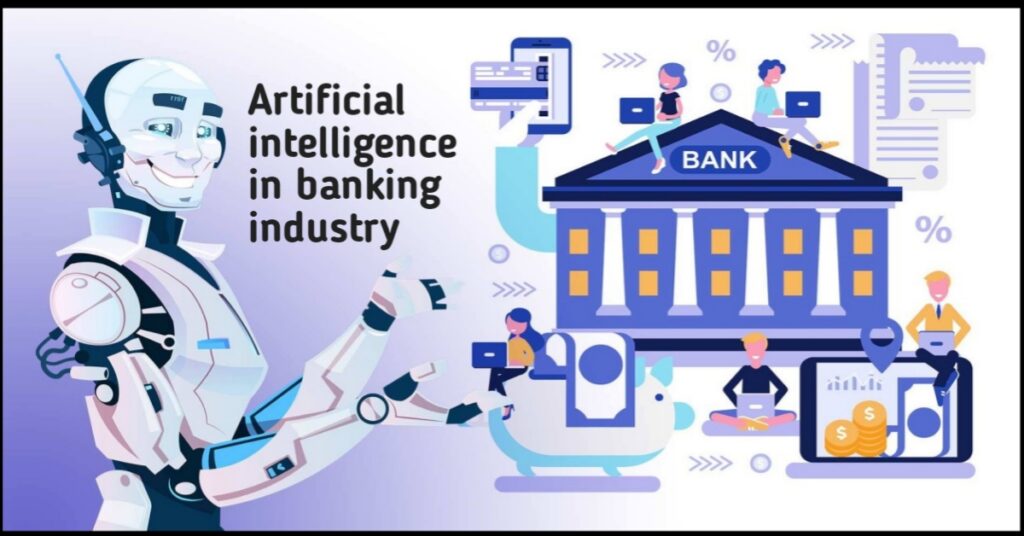Artificial Intelligence In Banking Industry
AI has made significant strides in the banking sector.
10 topic in Artificial intelligence in banking industry
1 Digital Banking Practices In Business
download account summary. These platforms indeed offer a range of convenient services, including checking balances, reviewing transaction histories, managing beneficiaries, transferring funds, and downloading account summaries.
2 Essay on the Role of Banking in the country-voice Economy
Banking as an industry processes cash, credit, and other financial transactions. Banks provide a safe place to store extra cash and loans. Bank loans and credit mean that families don’t have to save before going to college or buying a house. Banking plays a significant role in the economy of any nation. Understanding banking’s role in the economy is crucial. It’s not just about processing transactions; banks act as financial intermediaries, safeguarding money, providing loans, and enabling economic growth. Exploring this role in your essay can shed light on how banking influences economic development and shapes financial landscapes.
Artificial Intelligence In Banking Industry
3 Advantages and Disadvantages of Technology in Banking Sector
Technologies are changing the face of each country. It also revolutionaries the way an industry performs. Over the year banking industry has also changed.
We have cautions that recognize harmful substances in our air, restorative hardware that can distinguish. technological advancements have a profound impact on the world, revolutionizing industries including banking. Technology enables banks to streamline operations, offer more personalized services, and ensure enhanced security measures for transactions.
Beyond banking, innovation spans various sectors, from health with diagnostic medical devices to environmental safety systems. These advancements not only improve efficiency but also contribute to improving the quality of life and safety standards across different aspects of society. The interconnectedness of technological advancements across various industries is reshaping our world in profound ways.
Artificial Intelligence In Banking Industry
.
Related more article – Banking Topics – News, Training
.
4 Essay on Artificial Intelligence in Banking
Artificial Intelligence In Banking Industry
In the realm of banking, customers’ expectations have shifted significantly. They seek convenient, efficient, and seamless experiences, prompting banks to embrace digital solutions. This transition has reshaped traditional banking practices, replacing queues with online interfaces, reducing physical visits, and prioritizing user-friendly, accessible services.
The banking sector’s evolution reflects the broader trend of meeting evolving customer needs through technological integration. Emphasizing user-centric approaches, streamlined processes, and accessibility, banks strive to remain relevant and competitive in a tech-driven landscape.
Artificial Intelligence In Banking Industry
5 What are Ethics and their Importance in Global Banking and Business Today?
It’s rooted in moral principles governing behavior and judgment, influencing how people perceive right and wrong and guiding their decision-making.
Artificial Intelligence In Banking Industry
In various scenarios, ethical considerations might differ significantly, leading to diverse opinions on what constitutes ethical behavior. This subjectivity often leads to discussions on ethical relativism, where ethical truths are seen as relative to individual beliefs, cultures, or contexts.
In the realm of business, ethics often revolves around maintaining transparency, fairness, and responsibility in dealings with customers, employees, and stakeholders. The interpretation and application of ethical principles in business practices can vary, contributing to debates on corporate social responsibility and ethical decision-making. What specific aspect or industry are you interested in exploring regarding ethics and its diverse interpretations?
Artificial Intelligence In Banking Industry
6 The Usage Of Artificial Intelligence In Banking
Artificial Intelligence and Banking As global technology has evolved over the years, we have moved from Landline phone to Mobile, Television to Internet and Branch Banking to Mobile Banking and today we are smoothly and gradually adopting Artificial Intelligence (AI).
AI has indeed transformed various industries, including banking. Its integration has streamlined processes, enhanced customer experiences, and bolstered security measures. The ability of AI to analyze vast amounts of data swiftly has been a game-changer for financial institutions. It’s enabled personalized services, fraud detection, risk assessment, and even chatbot-based customer support, revolutionizing how banking services are delivered.
7 A Critical Evaluation of the Competition Laws on the Zambian Banking Sector
This approach, driven by demand and supply dynamics, empowers markets to regulate prices and allocate resources efficiently. Competition plays a pivotal role in driving socio-economic development, encouraging innovation, efficiency, and ultimately benefiting consumers and the overall economy.
Artificial Intelligence In Banking Industry
8 History Of Money And Banking
All banks do operate on.
Money indeed serves as a medium of exchange and a unit of account, facilitating transactions and debt settlements within an economy. Banking, on the other hand, encompasses the management of financial transactions, including money storage, lending, and investing. The historical evolution of money and banking interconnects deeply. Understanding their intertwined history offers insight into the evolution of financial systems worldwide.
Artificial Intelligence In Banking Industry
9 Banking: Private And Public Sector
What is Banking? Nonetheless, with the progression of time, the exercises secured by banking business have broadened and now different administrations are likewise offered by banks.
The traditional notion of banking centered around accepting deposits and lending for profit. Over time, banking has evolved significantly, offering a plethora of services beyond the core functions. Today, banks provide a wide range of financial services including issuing debit and credit cards, offering safekeeping for valuables, providing lockboxes, extending ATM services, facilitating online banking, investment advisory, insurance products, and more. This expansion reflects the adaptation of banks to meet the diverse needs of customers in an ever-evolving financial landscape.
Artificial Intelligence In Banking Industry
10 The Operational Differences Between The Concept Of Banking In The Muslim World And The Western World
While looking at the differences the study will identify the advantages and disadvantages for both sides equally.
Islamic banking operates on principles guided by Sharia law, prohibiting interest (riba) and engaging in unethical or speculative transactions. It’s founded on profit-sharing, risk-sharing, and ethical investments. Conventional banking, in contrast, operates on interest-based transactions and a wider range of financial instruments.
Read more >>
Vivo X100 Pro Latest Smartphone With Best Camera
Banking Industry Analysis Essay Topics
Finance Project Topics Idea For All
Research Topics For Finance 2024






